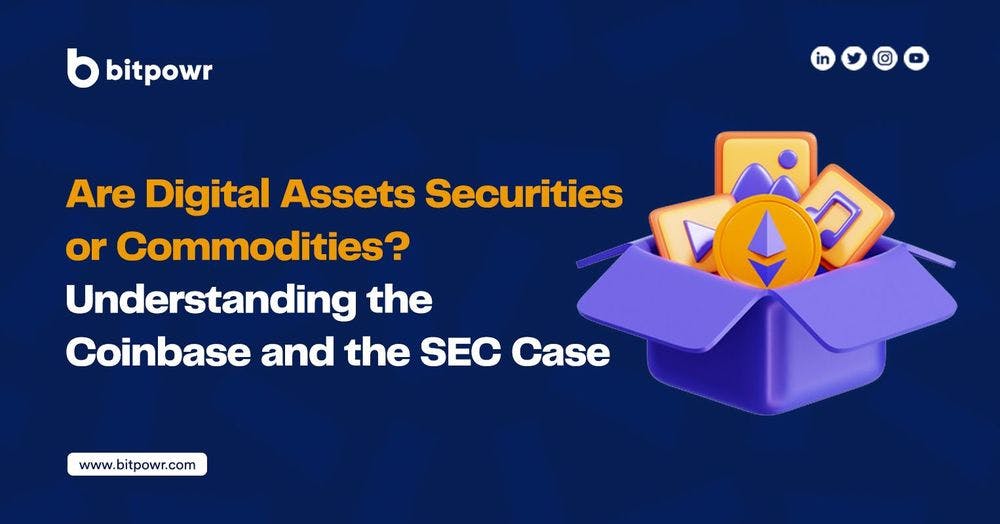The growth and development of the blockchain industry have sparked debates about how to regulate its players. The latest high-profile case that has brought this issue to the forefront is the ongoing legal battle between Coinbase, a leading cryptocurrency exchange, and the U.S. Securities and Exchange Commission (SEC). The crux of the matter is whether cryptocurrency should be classified as a security or a commodity, a question that has far-reaching implications for the entire industry. This article will examine the Coinbase-SEC dispute and its potential impact on the regulation of cryptocurrency.
Background on Coinbase and the SEC Case
Coinbase is a popular cryptocurrency exchange that allows users to buy and sell a variety of digital currencies. In December 2020, the SEC notified Coinbase that it planned to sue the company over allegations that it had sold unregistered securities in the form of cryptocurrency. Specifically, the SEC was focused on Coinbase’s proposed Lend program, which would allow users to earn interest on certain cryptocurrencies.
The SEC argued that the Lend program constituted a security under U.S. law and that Coinbase had failed to register it properly. Coinbase, on the other hand, maintained that the Lend program was a commodity and thus did not need to be registered with the SEC.
Securities or Commodities, What’s the Difference?
At the heart of this dispute is the question of whether cryptocurrency should be considered a security or a commodity. Let’s look closely at what these two terms really mean.
Securities are tradable financial assets, like stocks or bonds. These assets represent ownership in a company or a debt obligation. For example, if you buy stock in a company, you own a small piece of that company. This means that you have a stake in the company’s profits and losses. Similarly, if you buy a bond, you are essentially lending money to a company or government and they will pay you back with interest.
Commodities on the other hand, are physical or virtual goods that are traded in financial markets. Examples of commodities include gold, oil, wheat, and other natural resources. If you buy a barrel of oil futures, for instance, you are essentially buying the right to receive a certain amount of oil at a future date at an agreed-upon price.
Crypto assets can be classified as securities or commodities. If a crypto asset is a functioning cryptocurrency or utility token, it’s generally considered a commodity. However, if a crypto asset comes into existence via an initial coin offering (ICO) or a token-generated event (TGE) where investors expect to make a return, it’s most likely going to be classified as a security and will have to follow securities laws.
There are a few factors to consider when evaluating regulatory risk for any particular crypto asset. These include whether it’s a coin or token if it’s mineable or decentralized, and if it’s functioning in production. Additionally, if there was an ICO or TGE, if it was offered in the U.S. in a public or private sale, and if there was KYC/AML completed are also important considerations. The least risky crypto asset is a mineable coin running on a functioning decentralized blockchain network. The most risky type of coin is a pre-mined and centralized coin that was created through an ICO.
Overall, the difference between securities and commodities boils down to whether the asset represents ownership in a company or a debt obligation (securities) or whether it is a physical or virtual good that is traded in financial markets (commodities).
Implications for the Cryptocurrency Industry
The outcome of the Coinbase-SEC case could have significant implications for the broader cryptocurrency industry. If the court ultimately rules that cryptocurrency is a security, it could mean that other platforms will also be subject to SEC regulation. This could include requirements for registration, reporting, and compliance with anti-money laundering and know-your-customer rules.
On the other hand, if cryptocurrency is ultimately deemed a commodity, it could mean that platforms like Coinbase will be subject to less regulation and oversight. This could make it easier for these platforms to innovate and grow, but could also make it easier for bad actors to engage in fraudulent activities.
Final Thoughts
While the ultimate outcome of the case is still unclear, it is clear that this is a complex issue that will continue to be debated for some time. In the meantime, investors and traders in the cryptocurrency space should be aware of the potential risks and uncertainties involved.
But one thing is certain, managing your digital assets has never been easier. Bitpowr offers a comprehensive range of blockchain solutions at competitive prices, including secure wallet solutions. We understand the requirements of digital asset businesses and financial institutions to succeed in the blockchain world. Let’s chat about how we can help you today.




